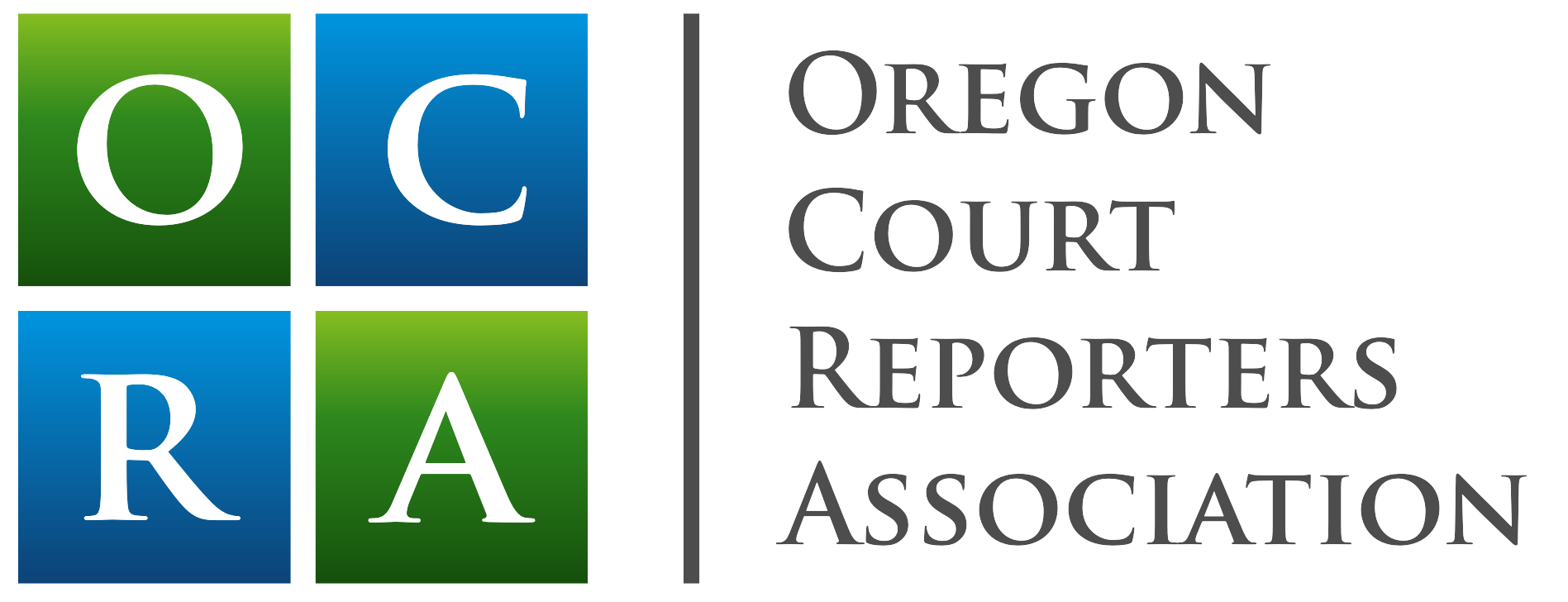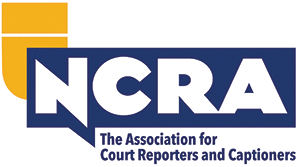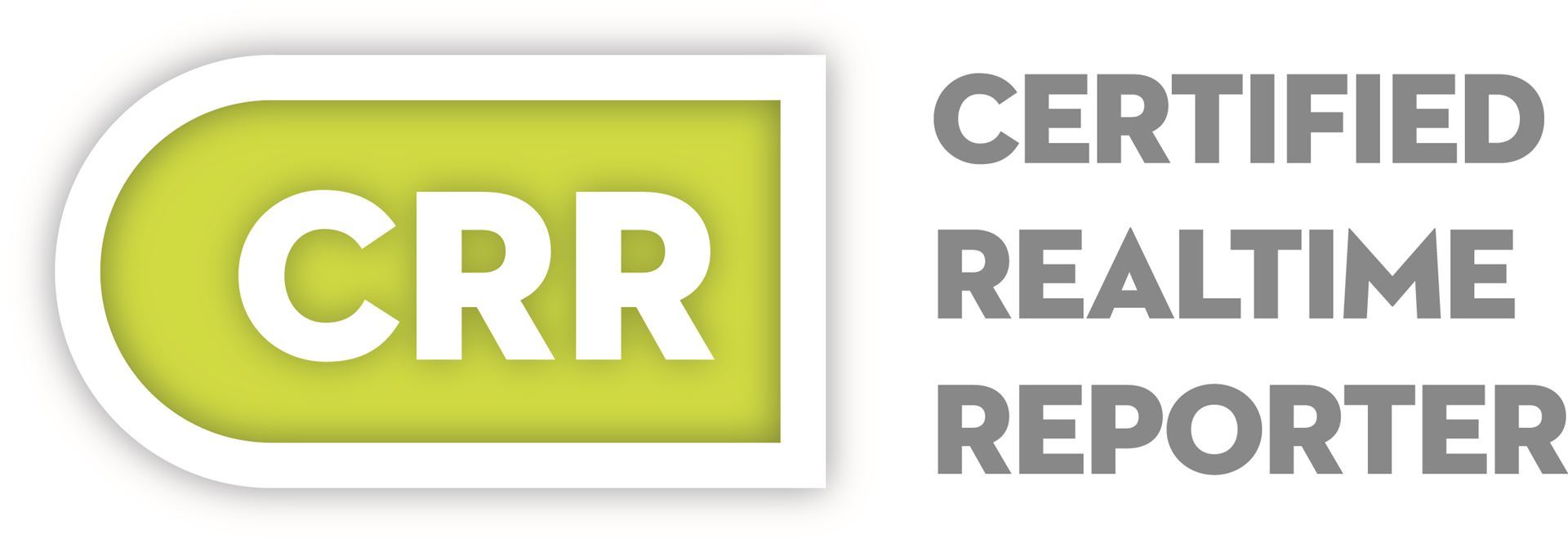What's in a certification?
RPR, CRR, RMR, CSR, CCR….ever wonder what all those letters mean? When you hire a certified court reporter, you can rest assured their skills have been tested at the highest level and they have pledged to abide by a strict code of professional conduct and ethics. Stenographers can be certified both on the state level, but also at a national level, most notably by the National Court Reporters Association.
State Certifications |
Oregon The State of Oregon Judicial Department Certified Shorthand Reporters (CSR) program verifies and certifies that shorthand reporters (one type of “court” reporter) meet certain standards for speed, conduct, and continuing education. While it is a voluntary program, the CSR is mandatory for court reporting in Oregon courts, and only Oregon CSRs are able to administer oaths over the phone. To obtain the Oregon CSR, stenographers are tested in three formats at varying speeds: Literary material at 180 words per minute, jury charge material at 200 words per minute, and Q&A material at 225 words per minute. Further information on Oregon CSR program, including the full policy, application for certification, and continuing education requirements can be found on the Oregon Judicial Branch website at: https://www.courts.oregon.gov/programs/csr/Pages/default.aspx | Washington Certification is mandatory in the state of Washington. It is administered through the Washington State Department of Licensing and is called the Washington Certified Court Reporter (CCR.) Stenographers must pass an exam in Q&A format at 200 words per minute in order to obtain the CCR. Further information on this certification including exam information, continuing education requirements, as well as the Standards of Practice Guidelines can be found on the Department of Licensing website at: https://www.dol.wa.gov/business/courtreporters/index.html |
| National Certifications |
One of NCRA's primary objectives is to set national certification standards and assist states seeking to establish certification or licensing requirements. To that end, NCRA has administered its nationally recognized certification program for court reporters since 1937. In addition, 22 states currently accept or use the RPR in the place of the state certification or licensing exam, including Oregon.
For more information on NCRA's certification program, please visit: https://www.ncra.org/certification
| The Registered Professional Reporter (RPR) is NCRA’s foundational certification designed for entry-level freelance and official reporters, students, those looking for a salary increase, and those in need of a license requirement. Stenographers are tested in the following formats at the following speeds:
In addition to skills testing, candidates must also pass a Written Knowledge Test (WKT) focusing on technology and innovation, industry practices, professionalism, and ethics. |
| The Registered Merit Reporter (RMR) is NCRA’s next-level skills certification designed for mid-career court reporters, those looking for the next level of networking, and those looking for a potential salary increase. Candidates must hold the RPR to apply. Stenographers are tested in the following formats at the following speeds:
|
| The Registered Diplomate Reporter (RDR) is NCRA’s highest degree of
certification designed for elite reporters desiring to join an exclusive
club of reporting excellence. To sit for the RDR Exam, a candidate must be a RMR and have five current
and continuous years of membership commencing with Participating or
Registered member status. |
| The Certified Realtime Reporter (CRR) is NCRA’s realtime proficiency certification designed for those who want to demonstrate realtime competency, those looking for an additional salary increase, reporters who wish to market themselves better as realtime reporters. Stenographers must pass a realtime skills test of Q&A material at 200 wpm. |
| The Certified Realtime Captioner (CRC) is NCRA's foundational certification designed for entry-level captioners who would like to begin working in the broadcast or CART captioning fields. Stenographers must attend a 10-hour CRC workshop, pass a Written Knowledge Test focusing on writing realtime, language skills, the broadcast captioning environment, the CART captioning environment, and research, and pass a skills test of literary matrial at 180 wpm. |






